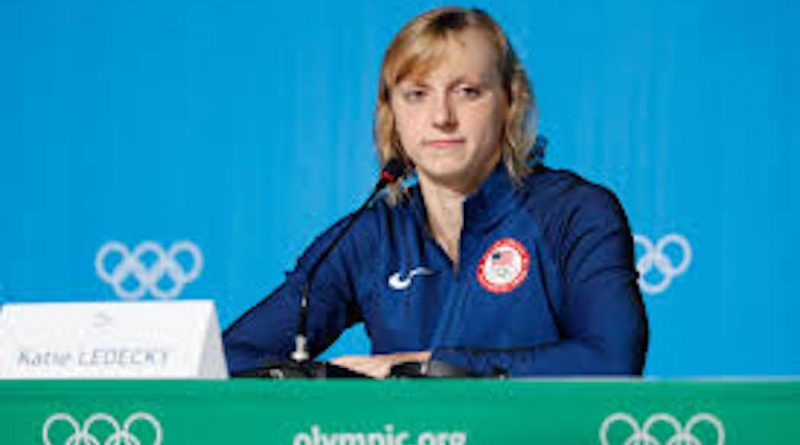OPINION: College Athletes Profiting Off of Their Likeness Helps Athletes and Universities
Peter Burtnett
Sports Staff Writer
Swimmer Katie Ledecky (cover photo) lost her eligibility to earn endorsement money from her Olympic successes when she decided to swim for Stanford. Courtesy of Wikimedia
The debate over whether collegiate athletes should be allowed to receive compensation from their name, image and likeness (NIL) has dominated the college sports landscape for much of the last decade.
On Sept. 30, California signed the “Fair Pay to Play” bill into law, which will go into effect in 2023. However, it is possible the changes made to the NIL rules could change even sooner, as the NCAA announced Oct. 29 in a press release that the governing board “voted unanimously to permit students participating in athletics the opportunity to benefit from the use of their name, image, and likeness in a manner consistent with the collegiate model.”
The statement also said the NCAA has asked each of their three divisions to begin creating new rules immediately. The NCAA said the new rules should be presented no later than January 2021, which could mean that changes are coming on a national level even sooner than the changes in California. These changes will mean more opportunities for athletes to profit from their NIL, which is good for both the athletes and the athletic programs.
“As a national governing body, the NCAA is uniquely positioned to modify its rules to ensure fairness and a level playing field for student-athletes,” NCAA President Mark Emmert said. “The board’s action today creates a path to enhance opportunities for student-athletes while ensuring they compete against students and not professionals.”
The changes made by California and proposed by other states – Pennsylvania and Florida also had bills in the works – would have created an unfair advantage for other states that did not adopt the changes to allow athletes to receive money from endorsements.
Some fans, coaches and even former players held onto the belief that athletes should simply play the game and enjoy the college experience, without turning from the sense of amateurism that makes college sports special.
See also – UD Athletics On Student Athletes Profiting From Their Image
However, the restrictions that are currently enforced on college athletes force them to choose college or profit. Why should the NCAA, a corporation that brings in billions of dollars every year, limit whether athletes can or cannot make money from endorsements?
One example of an athlete who likely missed out on a lot of money is Olympic gold medalist swimmer Katie Ledecky. After winning four golds and one silver at the 2016 Summer Olympics in Rio de Janeiro, Ledecky was forced to decide between appearing in advertisements and dropping out of Stanford University, in other words, miss out on millions of dollars from endorsements to receive her college education.
Ledecky chose the latter. Some athletes would do the same, but many would likely try to instead cash in on the millions and perhaps go back to school later. This forced decision is simply unfair to the athletes who bring in so much money but don’t see a dime of it. With sponsors like McDonald’s and Coca-Cola for the Olympics, Ledecky could have gained millions from advertisement post-Olympics.
At the end of the day, college sports will always have that sense of amateurism, even when the door is opened for athletes to receive money from endorsements. And that door will be open soon.
For more sports news, follow @FlyerNewsSports on Twitter

